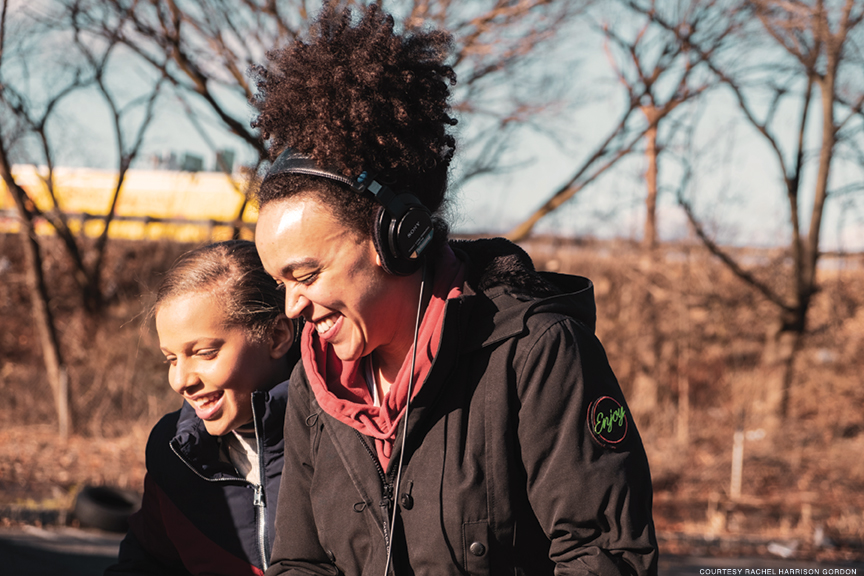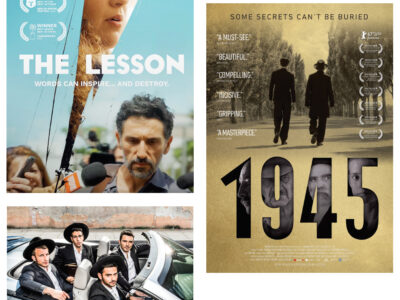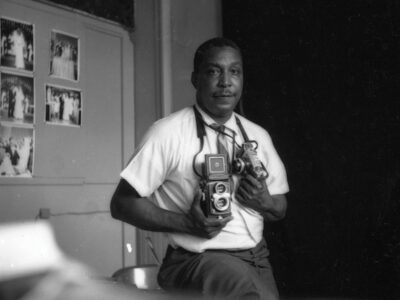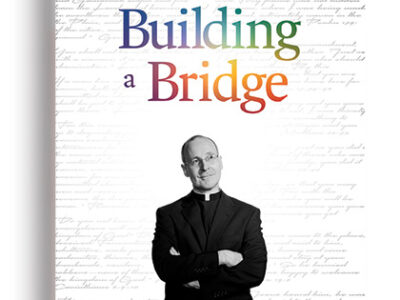
A first-time filmmaker brought her unique experiences as a biracial Jew to the screen.
Sprawled on the floor of a wood-paneled room, foam headphones pressing against both ears, Birdie is trying to memorize her Torah portion.
It’s a familiar pose to anyone who’s ever been a bat mitzvahed tween, but preparing to warble out Hebrew before an audience is only part of what’s occupying Birdie these days. There’s also her hair, which she has turned stick-straight in a painful, scalp-scorching process. Her mom, who is white, reacts with surprise when she sees it. Then it’s off to a truck stop diner where Birdie’s dad, who is Black, arrives for parent-daughter bonding time. When she refuses a soda at lunch because her mom doesn’t allow them, her dad says almost sternly, “With me, we drink soda,” before gulping from his own glass.
The push-and-pull between Birdie’s divorced parents and her biracial identity exemplify Broken Bird, a short film written and directed by Rachel Harrison Gordon EAS’12. To Harrison Gordon’s shock, the film was selected for more than a dozen 2020 festivals, including the Berlin International Film Festival, South by Southwest, Aspen Shortsfest and the San Francisco International Film Festival. It’s also her first film—ever.
Every moment of Broken Bird is deep-rooted inside Harrison Gordon, not just because she made it, but also because it’s her actual life, revisited on screen—with a few tweaks here and there.
Harrison Gordon’s white Jewish mom and Black dad divorced when she was four years old. She grew up with her mom in North Jersey, where “most of the spaces I was in were predominantly white,” she says. It often felt like no one, including her own parents, could fully understand her experience as a biracial Jew. At her synagogue, she was asked to argue which was worse: slavery or the Holocaust. Later, as a Black woman in STEM, “I persevered through misogyny and racism,” she says. Because of such experiences, “I was ashamed of my intersectionality and made myself smaller, more invisible, to fit in.”
Time with her dad was sparse, and often he’d spend as long traveling to their meetups as he spent with his daughter once he got there. They’d usually hit the mall or a music store, buy a CD, then drive around in his car listening to it. “It would be really short, but I’d think about those minutes for days and weeks and months after,” she says. “Now I realize that the amalgamation of all those moments really did build something substantial. It made it so I didn’t give up on him.”
Harrison Gordon made Broken Bird for her first film assignment at NYU, where she is completing a dual MBA/MFA program meant for aspiring film producers. She initially worried about sharing the first draft of her 10-page script with her class. Was a slice-of-life story pulled from her own experience important enough? Interesting enough? It turned out her classmates thought so.
So did Spike Lee, the legendary film director who teaches a course at NYU. Harrison Gordon signed up for his office hours and Lee read an early script of Broken Bird, challenging her to think about how her life might have been different if both her parents were Black. “He made me appreciate the uniqueness of my setup—that it was special and that I should lean into portraying that,” she says.
Lee also introduced her to the young actor Indigo Hubbard-Salk, who became Birdie in the film. For Birdie’s dad, Harrison Gordon landed Chad L. Coleman, who starred in both The Wire and The Walking Dead.
Shooting lasted five days in New Jersey, including some scenes in her actual childhood home and the synagogue where she herself was bat mitzvahed.
Harrison Gordon loved the filmmaking process, though it was nothing she’d ever imagined herself doing. As a mechanical engineering major at Penn, she didn’t take any film classes. The closest she got to the arts was a basic acting class and volunteer work with CityStep Penn, a dance-theater program for local elementary schools.
She moved through several tech-centered jobs after graduation, including a run as the manager of mobile analytics for the New York Times. In 2014, she became a Presidential Innovation Fellow in the US Department of Veterans Affairs. Still, “I felt like there was something missing,” she says. “I kept getting so close to having a real impact, but then not being in the right role.”
So she “quit everything” and, while on a backpacking trip in New Zealand, decided to apply to graduate schools. Learning techniques on the fly from YouTube tutorials, she made a short documentary film for her application to NYU. It focused on her in-laws, Ruben Gur and Raquel Gur M’80 GM’84, both of whom work in neuropsychiatry at Penn. (Harrison Gordon met their son, Alon Gur C’12, at a Mask and Wig performance her junior year at Penn. “I guess when he was doing a kickline in a skirt, that’s when I fell in love,” she jokes of her husband.)
When she first got into NYU, she figured she’d learn the skills required to perhaps create a production company. “I did not see myself as [an artist] until I got to make this movie,” she says.
Since Broken Bird made its world debut at the Berlin Film Festival in February, she’s been approached about other projects, including possible directing gigs for kid-focused programs. “I’ve had a couple of really cool meetings with studios and production companies that have acquired material they think I’d be a good fit for,” she says. “I think part of the desire to work with me is because of my experience in this intersectional world, which I think is a budding topic right now.”
Harrison Gordon is also eager to turn Broken Bird into a feature-length film. She still has plenty of story left to tell, and plans to begin pitching it as Hollywood opens back up.
“Obviously I would love to be on set with people right now laughing and figuring out how to tell a story and getting the lights right,” she says of the pandemic halting filmmaking just as she was getting started. “But I have been grateful for the time to write things that I wouldn’t allow my mind to spend time thinking about when I was in school.”
Meanwhile, as the film festival acceptances continue rolling in—Florida, Atlanta, Philadelphia, Annapolis, Palm Springs—she says she’s most moved by the parents and other biracial kids who’ve reached out after watching Broken Bird.
“That’s what really fills my heart,” she says. “They’re just grateful to see images of themselves on-screen, and I can definitely relate.”
—Molly Petrilla C’06




